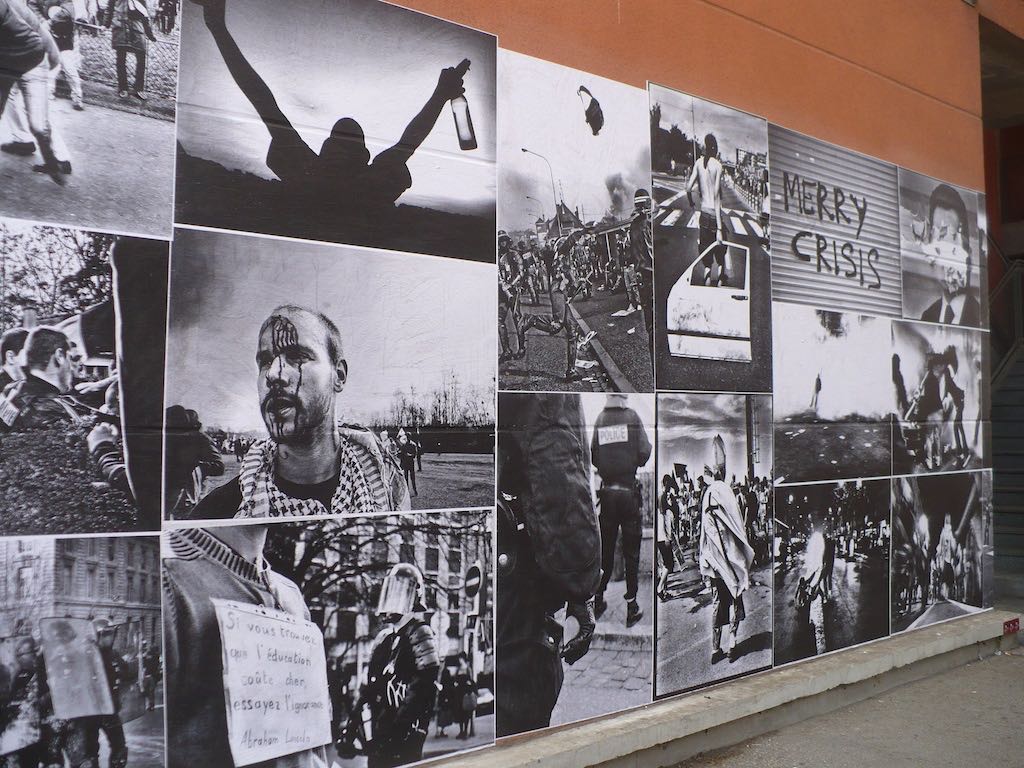If we hope to raise consciousness about our present crises, it seems to me that theory still matters and history still matters.[2] As this book suggests, these two things are not even really separable. Our theories and categories have a decisive role in our efforts to make sense of the world, even as they emerge themselves from that world. The history of “theory” is still fraught terrain, and it is worth trying to get it right. This book thus becomes a sort of anti-manual for “reading French Theory,” and even, perhaps, an anti-manual for reading “theory” in general. In its very form, this book is a protracted critique of any scholastic form of reading that centers on “the texts.” Can anyone really understand a text without understanding the relations of its production and the social being of its authors? My reading of Michel Foucault shifts decisively when I learn that he was a founding figure of an institution of toxic sexism and women’s exclusion. My sympathy for Jacques Rancière’s “emancipatory” pedagogy (1991) dwindles when I learn about his dubious stances towards precarious teachers. Meanwhile, as we have seen, the very distinction between intellectual work and life is only a sort of ritual performance (these philosophers may work in bed, but they then present their work in public as if it were quite separate from their lives). We must give up the fantasy that we can distinguish an author’s personal issues from their “work.” For the issues always come out in the work. They point towards that which remained unthought.
At the same time, and here the methodology cuts both ways, that which seems to be a general theory is often a very conscious reflection on local institutional circumstances. Jean-François Lyotard’s famous Postmodern Condition, for instance, was originally published in the late 1970s, at a moment when the survival of the University of Paris 8 and its Philosophy Department was far from clear; and Lyotard’s account of knowledge getting newly absorbed into capitalist “performativity” was a reflection of his own experience at the University of Vincennes. Thus theory is never fully deterritorialized; even when it circulates transnationally, it remains rooted in a more local political unconscious, in a local history of struggle.

Since “theory” is largely produced in academic and university spaces, it matters how we read “the university.” This has been an odd venture in ethnographies of the university; and it reminds us again that the university is never a stable, monolithic, or fully autonomous space. There are little utopias within the university; there are spaces that get appropriated and then reappropriated. Academic spaces are permeated by their own social geography, by their sites in the banlieue, or by their historical locations in a postimperial metropole. It bears saying that after the conclusion of my fieldwork, the Philosophy Department began to have a more marked postcolonial turn, hiring younger specialists in postcolonial questions. And it began to shift its own relations of social reproduction in a way that may continue to decenter its own historically dominant subjects. A Congolese philosopher was recently hired, Nadia Yala Kisukidi, and she has spoken publicly about the experience of being a Black woman in French philosophy. A mere five years earlier, such a gesture from a philosophy professor at Paris 8 was unheard of. Fieldsites change after we leave them. French cultures are not timeless. Ethnography becomes historical ethnography, whether we like it or not.
In the face of this looming historicity, this has nevertheless been an effort to develop a reflexive method adequate to its reflexive object, a method which seeks to dereify theory by exploring its sociohistorical circumstances. The method I have developed has been one of impressionist collage; I have tried to bring together gender, race, social class, the academic culture of the humanities, status, power struggles, postcolonial geography, urban abandonment, mystification, precarious work, hope, ambivalence, the ritual production of knowledge, the struggles to live on campus or be evicted from it, male violence, denunciation, fire, unrealized theories of emancipation, neoliberal politics and protests, and the hovering of many histories one above the next… None of these are covered comprehensively, but the juxtaposition may prove fruitful.
I don’t think of my method as any kind of template or methodology for studying theory or the university. It would be lame to say that only ethnography can understand theory, say by reducing it to its relations of production; ethnography is not a better genre of realism or some kind of empiricist deus ex machina. This is a materialist book, but I don’t think of it as making great claims to epistemic superiority. On the contrary, I think that ethnography can be a powerful form of theatre for the brain. Its very theatricality, its weirdness and its impressionism can help us push past some of our bad attachments and bad narratives. Theatre is in turn not mere spectacle or distraction from the world; it is a way of working through historical problems, of co-generating life and concepts. A mode of thought. Thus the utopian, sometimes speculative or dreamy quality of this book is inspired by its object, with which it has, I still think, a certain mimetic resonance.
-
For one South African formulation of this claim, see Gillespie and Dubbeld 2007. ↩